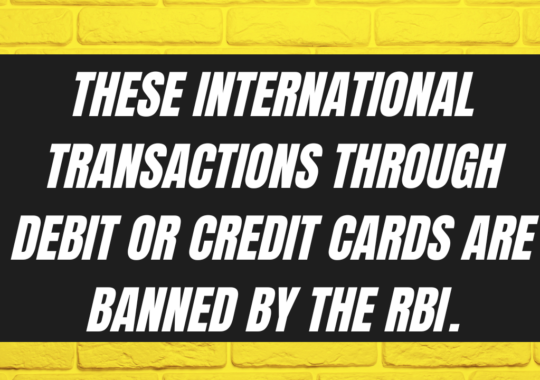In today’s world, credit cards are ubiquitous, offering enticing rewards such as cashback, travel points, and other perks. It’s easy to see why people often carry multiple credit cards. However, a critical question arises: how many credit cards are too many? The answer is not straightforward and depends on various factors, including individual financial habits, goals, and responsibilities.

Understanding the Fundamentals
Before discussing the number of credit cards one should hold, it’s important to understand the basic principles of credit card usage. Credit cards provide a convenient way to make purchases, build credit, and earn rewards, but they also pose risks, such as high-interest rates and potential debt accumulation.
Benefits of Owning Multiple Credit Cards
- Higher Credit Limit: More credit cards can increase your total available credit. This can positively impact your credit score by lowering your credit utilization ratio—the amount of credit used compared to the total credit available.
- Variety of Rewards: Different cards offer various rewards, from travel points to cashback on everyday purchases. Owning multiple cards allows you to maximize these benefits by using the most advantageous card for each type of purchase.
- Backup Options: Having several credit cards provides a safety net. If one card is lost, stolen, or compromised, you have others to rely on.
Risks of Having Too Many Credit Cards
- Debt Risk: The more credit cards you have, the easier it is to overspend, potentially leading to significant debt if not managed properly.
- Credit Score Impact: Applying for multiple credit cards in a short period can negatively affect your credit score. Each application results in a hard inquiry on your credit report, which can temporarily lower your score.
- Management Challenges: Keeping track of multiple due dates, payment amounts, and reward structures can be overwhelming. Missing a payment on one card can lead to late fees and damage to your credit score.
Finding the Right Balance
The ideal number of credit cards varies from person to person. Here are some factors to consider when determining how many credit cards are too many for you:
- Financial Discipline: If you are disciplined and can manage payments effectively, having multiple credit cards can be beneficial. However, if you struggle with budgeting and controlling spending, it’s wise to limit the number of cards you hold.
- Credit Utilization: Aim to keep your credit utilization ratio below 30%. If having more credit cards helps you achieve this without leading to overspending, it might be worth considering.
- Reward Optimization: If you can leverage different rewards programs effectively and benefit from various cards without incurring debt, multiple credit cards can be advantageous.
- Annual Fees: Consider the cost of annual fees. Some cards offer high rewards but come with significant fees. Ensure the benefits outweigh the costs.
- Credit Score Impact: Be mindful of how new credit card applications affect your credit score. Space out applications to minimize the impact of hard inquiries.
Personal Scenarios and Their Implications
- The Minimalist: Some people prefer simplicity and opt for one or two credit cards. This approach minimizes the risk of debt and makes financial management straightforward. If you’re a minimalist, sticking to a couple of cards that offer broad benefits is likely sufficient.
- The Optimizer: Others enjoy maximizing rewards and may hold several credit cards to take advantage of different offers. If you’re diligent about paying off balances in full and keeping track of due dates, having multiple cards can work well.
- The Rebuilder: Individuals working to rebuild their credit might start with secured credit cards and gradually add more as their credit improves. In this case, it’s essential to focus on managing a few cards responsibly before considering additional ones.
Practical Tips for Managing Multiple Credit Cards
- Automate Payments: Set up automatic payments to ensure you never miss a due date. This can help maintain a good payment history, which is crucial for your credit score.
- Track Spending: Use budgeting tools and apps to monitor your spending across different cards. This helps prevent overspending and ensures you’re making the most of your rewards.
- Review Statements Regularly: Check your statements every month to catch any fraudulent charges early and to keep track of your spending.
- Keep Cards Active: Use each card occasionally to prevent the issuer from closing the account due to inactivity. However, ensure you can pay off the balance in full each month.
- Know Your Limits: Be aware of each card’s credit limit and try to stay well below it to maintain a healthy credit utilization ratio.
The Psychological Aspect
Beyond the practicalities, it’s essential to consider the psychological impact of having multiple credit cards. Credit cards can create a false sense of financial security, leading some people to spend beyond their means. The stress of managing debt and multiple payments can also affect mental health.
Conclusion
So, how many credit cards are too many? There is no universal answer. It depends on your financial habits, goals, and ability to manage credit responsibly. For some, one or two cards may be ideal, providing sufficient credit and rewards without the complexity of managing multiple accounts. For others, having several cards may be beneficial if they can optimize rewards and maintain disciplined financial practices.
The key is to assess your situation carefully. Consider your financial habits, understand the risks, and evaluate your ability to manage multiple cards effectively. By doing so, you can determine the right number of credit cards for your lifestyle, ensuring that you reap the benefits without falling into the pitfalls of debt and financial stress.
Princy Agarwal, a postgraduate in English from Delhi University, writes content for Tricky Finance, where they simplify complex financial topics for readers. With a knack for clear communication, Princy’s work helps make finance understandable and accessible to all.




